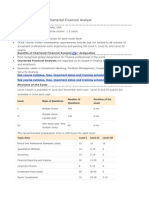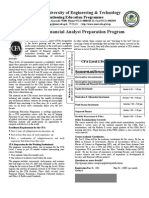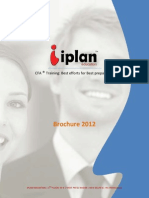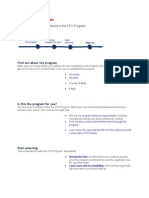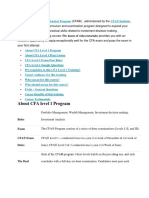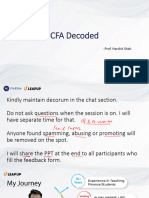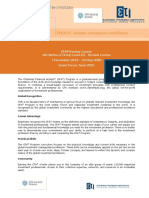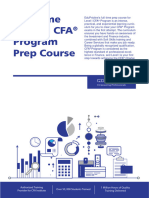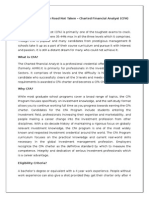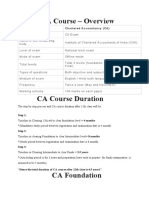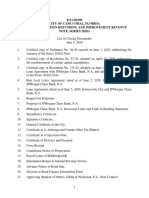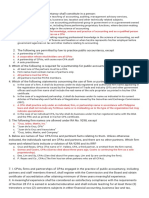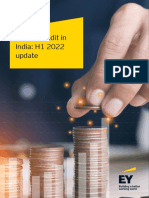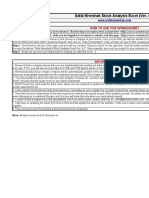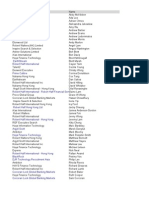0% found this document useful (0 votes)
459 views6 pagesCFA Course / CFA Certifi Cation
The document provides information about the CFA course including details about eligibility requirements, exam format and structure, fees, career prospects, and a comparison with other finance qualifications like MBA and FRM. The CFA certification is a globally recognized qualification for finance professionals consisting of three levels of examinations covering topics in finance, ethics, and investment analysis.
Uploaded by
amisha mangalCopyright
© © All Rights Reserved
We take content rights seriously. If you suspect this is your content, claim it here.
Available Formats
Download as DOCX, PDF, TXT or read online on Scribd
0% found this document useful (0 votes)
459 views6 pagesCFA Course / CFA Certifi Cation
The document provides information about the CFA course including details about eligibility requirements, exam format and structure, fees, career prospects, and a comparison with other finance qualifications like MBA and FRM. The CFA certification is a globally recognized qualification for finance professionals consisting of three levels of examinations covering topics in finance, ethics, and investment analysis.
Uploaded by
amisha mangalCopyright
© © All Rights Reserved
We take content rights seriously. If you suspect this is your content, claim it here.
Available Formats
Download as DOCX, PDF, TXT or read online on Scribd
/ 6



